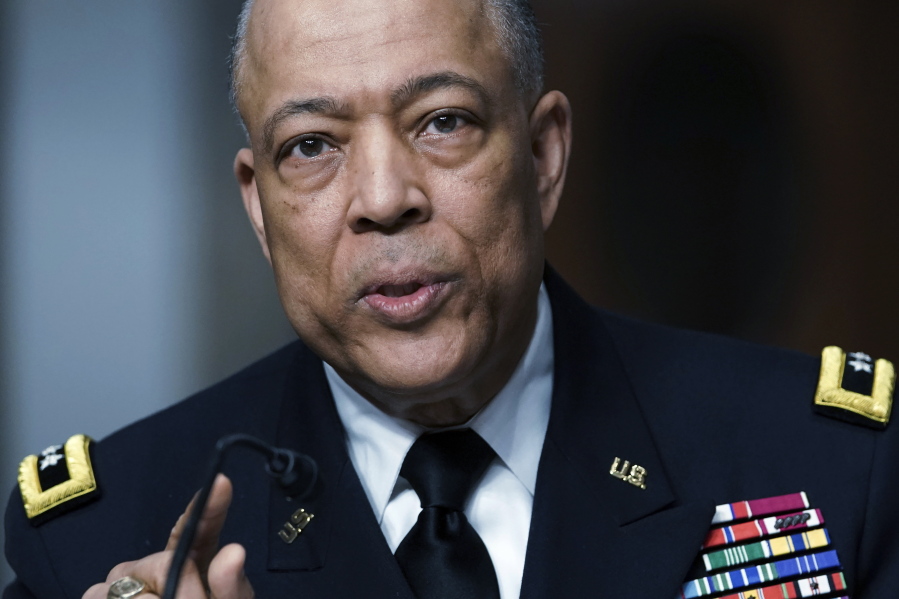WASHINGTON — Defense Department leaders placed unusual restrictions on the National Guard for the day of the Capitol riot and delayed sending help for hours despite an urgent plea from police for reinforcement, according to testimony Wednesday that added to the finger-pointing about the government response.
Maj. Gen. William Walker, commanding general of the District of Columbia National Guard, told senators that the then-chief of the Capitol Police requested military support in a “voice cracking with emotion” in a 1:49 p.m. call as rioters began pushing toward the Capitol. Walker said he immediately relayed the request to the Army but did not learn until after 5 p.m. that the Defense Department had approved it. Guard troops who had been waiting on buses were then rushed to the Capitol, arriving in 18 minutes, Walker said.
The hourslong delay cost the National Guard precious minutes in the early hours of the Jan. 6 rioting, with Walker saying he could have gotten personnel into the building within 20 minutes of getting approval. As it stood, the support did not happen until the evening. The delay also stood in contrast to the swift authorization for National Guard deployment that Walker said was granted in response to the civil unrest that roiled Washington in June as an outgrowth of racial justice protests.
A senior Pentagon official who testified, Robert Salesses, said then-acting Defense Secretary Chris Miller wanted to take time to understand precisely how National Guard troops would be used at the Capitol and what assignments they would be given. Mindful of criticism that the response to the demonstrations last spring was heavy-handed, military officials were also concerned about the optics of a substantial National Guard presence at the Capitol, and thought such visuals could inflame the rioters, Walker said.



